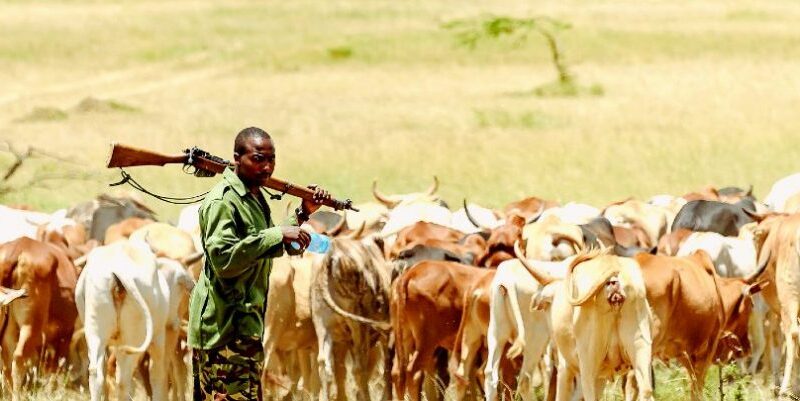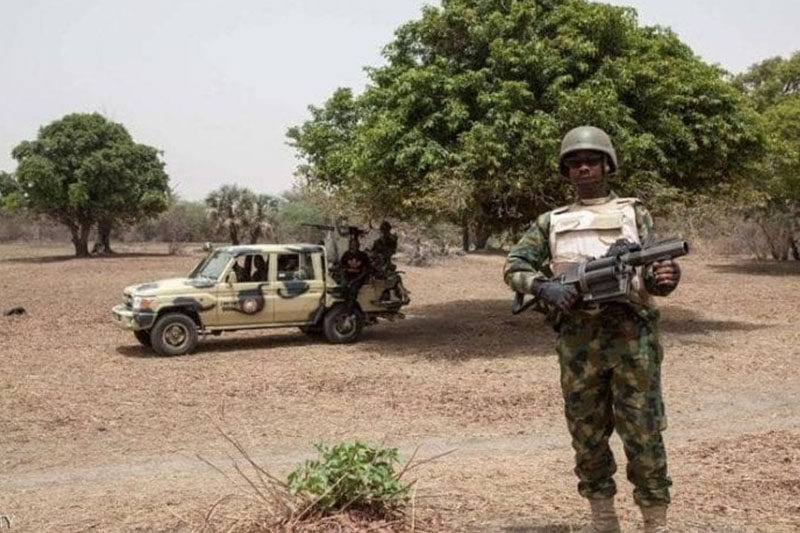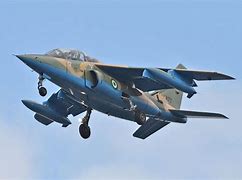Farmer-herder conflicts, which used to be most prevalent in southern Nigeria, are now becoming more common in Borno State in the northeast.
Once the sedentary farmers have planted their seeds, nomadic herdsmens’ livestock trample through their farms and eat up their crops. And that’s when the conflict starts.
Farmer Bukar Balu told RNI reporter Amina Abbagana that the Fulani herders’ livestock had destroyed his crops.
“I planted five to six bowls of beans but the herdsmen spoiled them. We may have to be patient because, if we talk to them, they shoot at us with their bows and arrows. I know of they killed one farmer on his land.”
Mamman Usman, also a farmer, said: “We thanked God for this year’s harvest. But the biggest problem we have are the herders. Their livestock eat our crops. And many farmers have been injured, some even killed. The herdsmen are stronger than us.”
He said in past years he would harvest 50 bags of crops but now he was lucky if he got three to four bags.
“We do not have any problems with Boko Haram because they leave us to do our farming and the soldiers allow us to farm. The herdsmen are our biggest problem. They will fight to the death if we confront them.”
Usman said the herders were nomadic and wandered around Kukawa, a town and local government area in Borno, close to Lake Chad.
He said he was angry because neither the government nor the traditional leaders were taking the necessary action to stop the herdsmen from attacking the farmers and destroying their crops.
“We depend on our farms for our livelihood.”
ReliefWeb, a humanitarian information service provided by the United Nations Office for the Coordination of Humanitarian Affairs (OCHA) said in study published on November 3 that farmer-herder conflicts had spread across Nigeria and had resulted in indiscriminate and avoidable loss of lives and properties.
It said that data from Nextier SPD Violent Conflict Database13 showed that in the 12 months to September 2021, farmer-herder conflicts occurred 71 times, accounting for 406 deaths, 49 injured and 15 kidnapped persons. Except for one death, all the victims were civilians.
“Climate change is arguably the major cause of farmer-herder conflicts. In the northern region, desertification and inadequate rainfall have led to shrinking grazing lands and scarcity of water.”
As a result, herders migrated in search of forage and water.
Poor agronomic practices – by both the farmers and herders – increased the need for land. As farmlands became nutrient-poor, farmers migrated to more fertile lands. Some of the most fertile lands were on designated cattle routes fertilised for generations by cattle droppings.
“Some of the farmers lay traditional claims to these lands, oblivious that they were designated cattle routes by the government. On the other hand, herders also claim these paths because they have travelled them, with their cattle, for generations. Significant increases in human and livestock populations exert pressure on available lands and put both parties on a collision course,” ReliefWeb said.
“Any perceived threat to a herdsman or farmer’s livelihood is a call to war. To the nomad, life is worthless without the cattle. Any threat to this source of existence is reciprocated with sufficient force. Encroachment of the grazing fields by the farmer is a call to war. Likewise, most farmers live below the subsistence level and any perceived affront to their means of livelihood elicits an equally severe response. Farmers perceive a threat to their livelihood when cattle trample through their farms and eat up their crops.”
ZAINAB ALHAJI ALI









